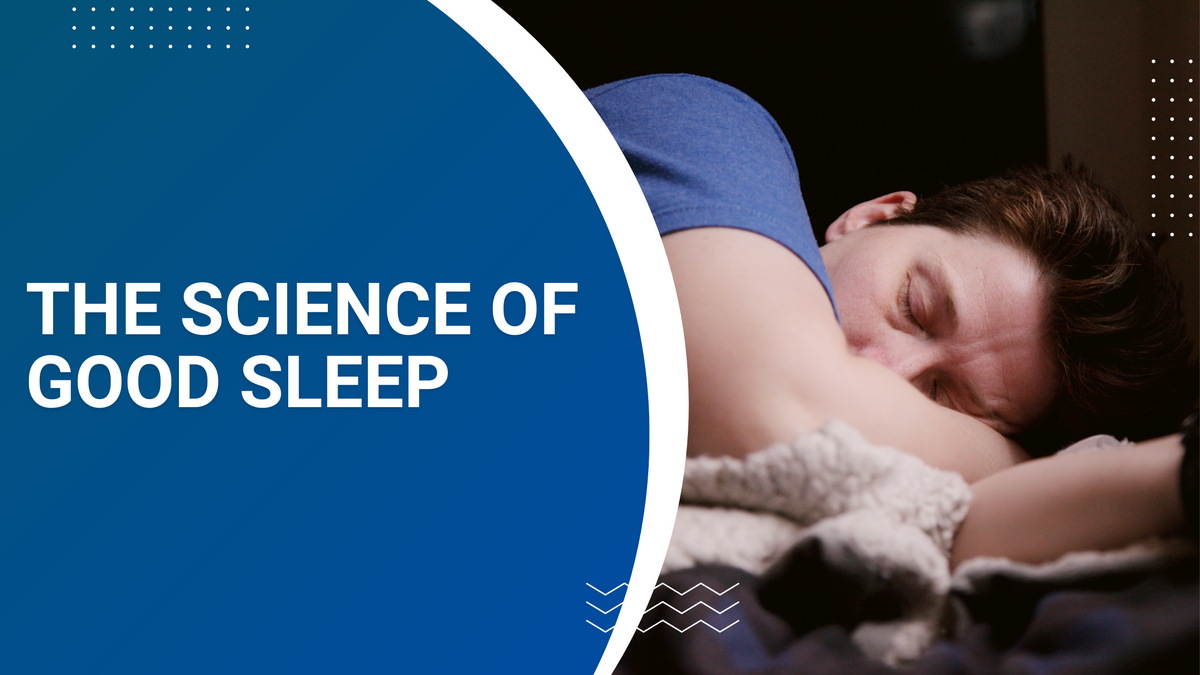The Science of Good Sleep
Jul 18, 22

Sleep is the most important physiological function performed by our body for its rest, repair and healing. It’s crucial for the optimal functioning and survival of our body. Yet, most of us take our sleep for granted. Do you ever wonder if your body is actually getting the amount and quality of sleep it requires? How can you even tell if you’re sleeping right? Here’s a guide to help you with this!
Sleep is governed by 2 processes by the body –
1. Homeostatic Drive, which is the drive or urge to sleep that gradually builds up through the day. The longer you stay awake since your last sleep cycle, the higher is your homeostatic drive. It’s because of this that we’re not sleepy during the morning, but slowly as afternoon progress we begin to feel drowsy.
2. Circadian Clock, which is the natural clock in our body which controls when we need to be awake and when we need to sleep. It determines our natural rhythm of sleep-wake cycle during a 24-hour period. The primary input for our circadian clock is light, which is why human beings are biologically compelled to sleep when light is less at night and stay awake during the day after sunrise.
The ideal sleep cycle is one which is perfectly synced with these two natural processes.
But what does an ideal sleep cycle look like?
The two factors which govern this are – quantity and quality.
On an average every human needs at least 6-8 hours of sleep every day for optimal functioning of the body. Sleeping lesser than this severely affects your health and cognitive functioning.
Now, within this 6-8-hour period of sleep your body experiences 4-5 sleep cycles. Every sleep cycle is of 90-120 mins period in which you go through different stages of sleep, including :
1. Stage 1 non-REM sleep is the changeover from wakefulness to sleep.
2. Stage 2 non-REM sleep is a period of light sleep before you enter deeper sleep.
3. Stage 3 non-REM sleep is the period of deep sleep that you need to feel refreshed in the morning.
4. REM sleep or Rapid Eye Movement which occurs in the latter half of your sleep. This is the stage in which you dream.
For good sleep to occur, it is important for your body to experience all stages of sleep through the night. The body regulates the duration of each sleep cycle and sleep stage based on your physiological needs
As an individual your goal should be –
1. Know how many hours of sleep your body requires.
2. Based on hours of sleep needed, set a consistent sleep time and wake up time.
3. Stay consistent and stick to the routine of sleeping and waking up on the same time every day.
If you follow this simple pattern of sleep cycle management, you are bound to experience good sleep.
Here are a few signs that you have good quality sleep –
1. You fall asleep within 15 minutes of getting in bed, at your intended sleep time every night
2. You don’t experience any disturbances or awakenings in the middle of your sleep
3. You are experiencing all stages of sleep during your sleep cycle
4. You wake up in the morning at your desired and consistent wake up time without the need for an alarm clock
The above signs imply that your body’s sleep and wake cycle is perfectly synched with your circadian clock. When your sleep is aligned with nature’s rhythm you will feel more energetic and alert through the day.


